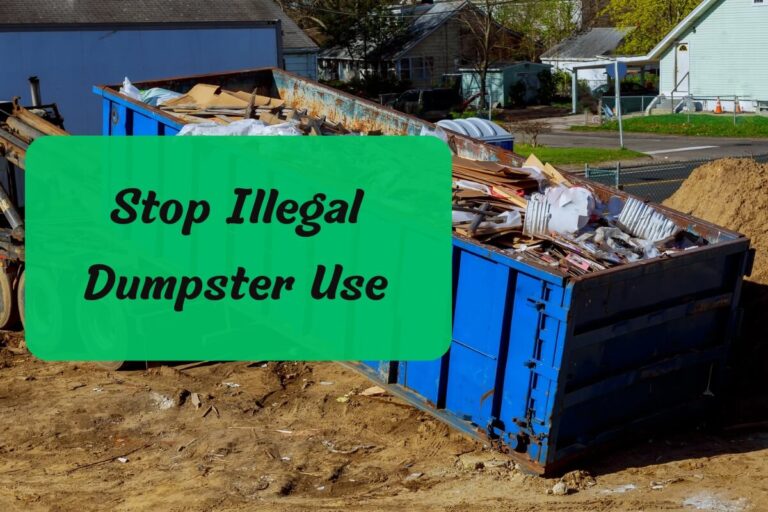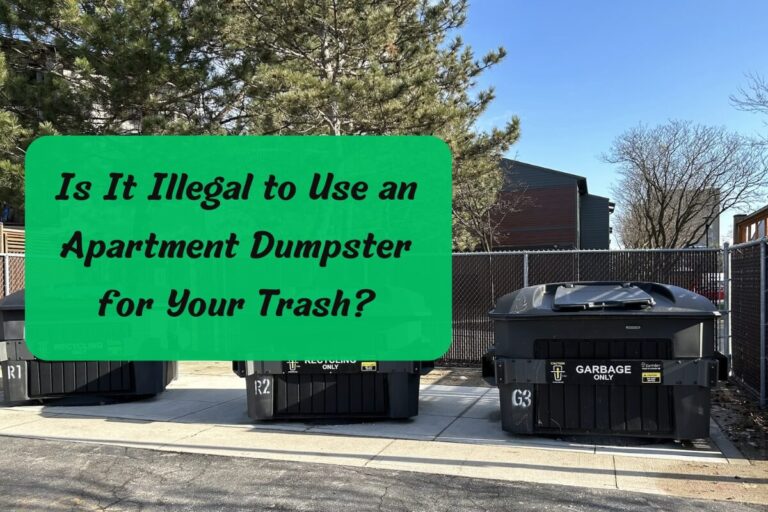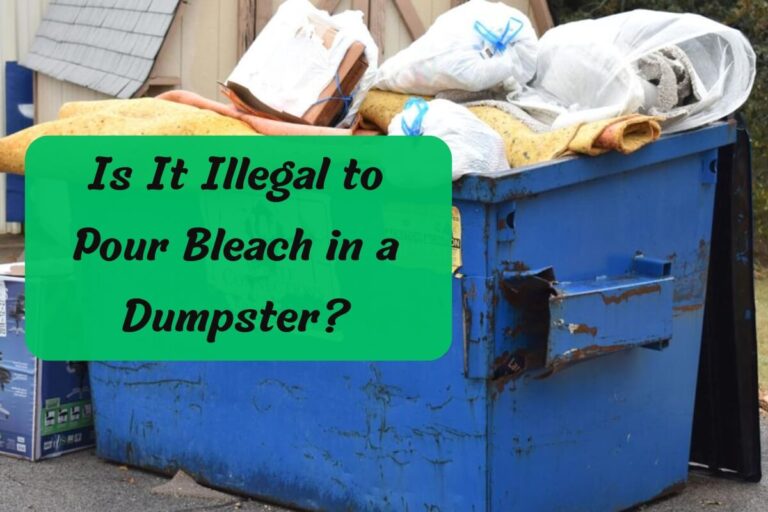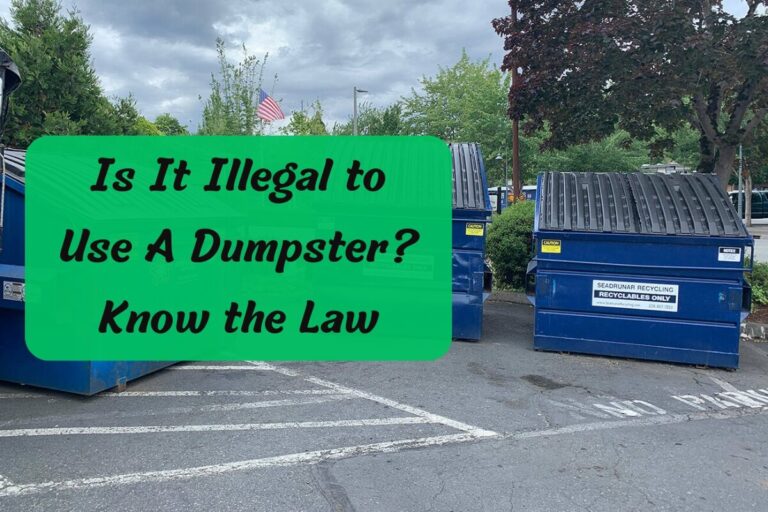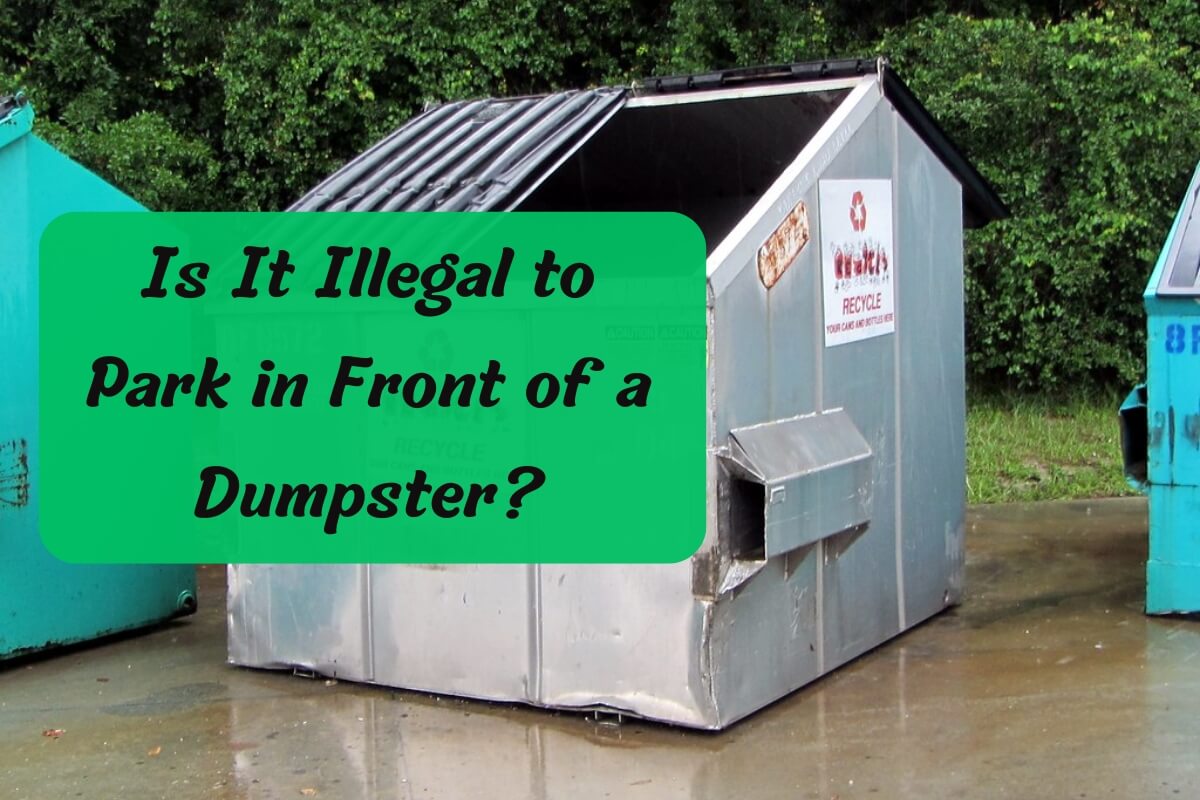
Is it illegal to park in front of a dumpster? The short answer is yes, in most cases it is against the law. However, the specific regulations and consequences vary depending on your location. Let’s explore the laws and regulations surrounding dumpster parking across the US.
Why Parking in Front of Dumpsters is an Issue?
Dumpsters are designed for temporary storage of waste and garbage until it can be collected by garbage trucks. When someone parks a vehicle directly in front of a dumpster, it blocks access for the collection truck. This forces garbage workers to either go around and try to maneuver the truck for pickup, or skip that dumpster entirely.
Beyond the inconvenience, a blocked dumpster can quickly become a health hazard or even a fire risk if garbage accumulates for too long. For businesses, apartment complexes, and other properties that rely on regular dumpster service, this lack of access is unacceptable.
That’s why most municipalities have laws specifically prohibiting parking that obstructs dumpsters. Violators may face fines, having their vehicle towed at their expense, or both.
Specific Laws on Dumpster Parking (by location)
While there are no nationwide federal laws about dumpster parking, states, counties, and cities have enacted their own regulations. Let’s look at some examples:
New Jersey State Law
New Jersey has a statewide law (NJ Rev Stat § 27:5I-1) that prohibits parking or leaving any roll-off dumpster unattended on highways or public property without consent from the appropriate town, county or state authority. Violators face fines up to $100.
West Richland, Washington Municipal Code
The city of West Richland prohibits any “nonvehicle” (including dumpsters) from being parked or stored on city streets, sidewalks, alleys or rights-of-way without a special permit. Violators may have their dumpster removed and face fines/fees.
New York City Rules
In NYC, it is illegal to “park a vehicle in front of a public or private driveway, No Parking zone, pedestrian ramp, or across a driveway/sideawalk intersection.” This extends to blocking dumpsters and garbage receptacles.
As these examples show, the core prohibition against obstructing dumpster access is consistent across jurisdictions. However, the specifics of the law, as well as associated fines and penalties, can vary substantially. Some states and cities have minimal laws, while others are very strict.
Consequences of Illegally Parking by a Dumpster
So what exactly can happen if you violate the dumpster parking laws in your area? While specific fines vary, the consequences generally fall into a few categories:
Monetary Fines
Getting a parking ticket for blocking a dumpster is extremely common. Fines can range from $20-50 in some cities up to $100 or more for repeat offenses.
Vehicle Towing
If the illegally parked vehicle prevents garbage pickup or is deemed a severe hazard, the authorities can have it towed and impounded. This leads to towing fees that are often $100-300, plus daily impound costs until you retrieve your vehicle.
Hit-and-Run Liability
In the worst case, illegally parking in front of a dumpster could lead to legal liability. If a garbage truck has to maneuver around your vehicle and accidentally hits another car or property, you could be deemed responsible for a “hit-and-run” incident.
Given the potential consequences and costs involved, it’s simply not worth the risk or convenience of temporarily parking in front of an active dumpster.
When is It Legal to Park Near Dumpsters?
There are few scenarios where parking momentarily by a dumpster is acceptable:
Active Loading/Unloading
Most dumpster parking laws have an exception that allows parking directly in front for a very short period (under 30 minutes typically) if you are actively loading or unloading items to/from the vehicle. The driver must remain with the vehicle at all times.
With a Valid Permit
Some cities allow parking longer-term dumpsters or roll-off containers on streets if the owner gets a permit ahead of time. Permits may be issued for construction projects, move-in/move-outs, or other temporary needs for a fee.
On Private Property
If the dumpster is located on private property, like a business parking lot, the owner of that property sets the rules for parking near it. Most prohibit non-customer vehicles from blocking dumpsters, but policies can vary.
Even in permitted situations, vehicles should never block critical areas like fire hydrants, pedestrian crossings, or access for other vehicles. If parking by a dumpster, use extreme caution and have a plan to move your vehicle if the garbage truck arrives.
Tips for Proper Dumpster Parking
To avoid any legal issues when you need to be near a dumpster, follow these tips:
- Check for local signage – Regulatory signs about dumpster access restrictions
- Don’t block the dumpster itself – Leave clearance for the truck to lift and empty it
- Use designated loading zones – These areas are designed for temporary parking
- Be dumpster pickup aware – Know the typical collection schedule and move your vehicle in advance if needed
By following the parking rules and being considerate of dumpster access, you can steer clear of expensive fines and legal headaches.
Final Takeaways on Dumpster Parking Laws
In summary, obstructing access to dumpsters with a parked vehicle is illegal in most places across the U.S. While specific laws, fines, and enforcement policies vary, blocking these waste receptacles creates inconveniences, health hazards, and legal risks.
Unless you have explicit short-term permission or a permit, it’s wise to avoid parking in front of dumpsters at all times. A little advance planning and awareness of your local regulations can save you from costly penalties and citations.
Follow the proper parking etiquette, check for restrictions, and find a legal parking spot away from active dumpster locations. Taking these simple precautions ensures clear dumpster access for garbage collection and keeps everyone happy.

